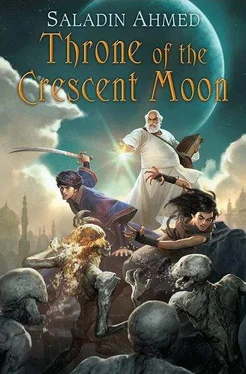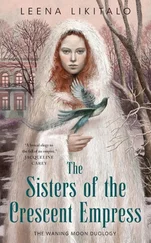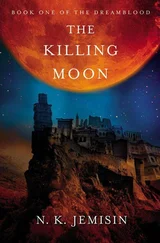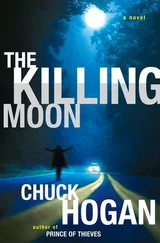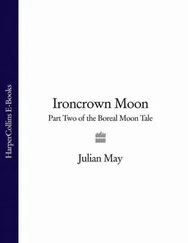“You will avenge your band, Zamia. Rest easy in that,” the Doctor said, and Zamia thanked God for the confidence in his eyes and scent.
The ghul hunter went on, his voice growing softer. “Child… you should know… That is… well, your pain is the freshest here, Zamia, but it is not unique. God’s truth be told, girl, we’re a veritable orphan hall here! The boy’s kin left all claim to him behind at the gates of the Lodge of God. My friends are a thousand miles and twenty years away from anyone they called family. And they’ve lost…” the Doctor stopped himself from saying something. “They’ve lost much more than you could know to this half-secret war we fight against the Traitorous Angel.”
Zamia looked over at Litaz. The alkhemist’s normally warm smile was nowhere to be seen. She gave Adoulla a sad look and stood up. In her small blue-black hands she held Zamia’s father’s dagger.
Zamia reached out weakly, wanting to hold the weapon in her own hands. “That dagger. My band’s…” she started to say.
“Don’t worry,” Litaz said, “I will return it. But—thanks to Raseed—we now have a solution that will distill the strange blood that blackens it to an analyzable essence. It will take me a little while to prepare it, though.”
The alkhemist darted another look at the Doctor—irritated rather than sad. “Adoulla, since you are so set on sharing secret pains today, maybe you should speak to the girl about your own family.” She left the room. Dawoud followed her out, throwing the Doctor an apologetic glance as he did so.
“And what, Doctor, was that about?” Zamia asked.
“Ask Litaz some time, and she will tell you, child. She is right, though, that I owe you a bit of my own story—for there should be a balance, between allies, in what we know of each other’s pain.”
Raseed, looking disgusted with himself and still smelling atypically of deception, stepped out of the room, giving her and the Doctor a bit of privacy. She watched the dervish go, puzzled, then forced her attention back to the ghul hunter. “Litaz mentioned your family,” she said.
“Aye. She means my parents, really. I only have the dimmest memories of them alive. Mostly I recall finding their bodies. As a boy, I told myself stories about them every day: they were killed because they were really a Khalif and queen in disguise and I, like a story hero, was a secret prince.
“But they weren’t royalty,” the Doctor went on. “They were a porter and his wife, ordinary people of the Scholars’ Quarter, who left me, through no choice of their own, to a cruel fate with no kin and no money.”
The Doctor paused to fetch Zamia a clay cup of cool water. She took a long drink from it, felt the sweet pain of her parched throat coming to life again. She didn’t know what to say to the Doctor’s words. “How did they die?” she asked, realizing too late that to these too-subtle city men, such a question might be taken as rude.
But the Doctor only sighed. “Pointlessly, my dear. They died pointlessly. No grand prophecy, no dark mission of the servants of the Traitorous Angel. Just a pathetic, desperate piece of shit with a knife, who was drunk or stupid enough to think he could somehow get a few coins out of my completely coinless father.” Vacantly, the ghul hunter plucked up a bit of brown cloth from a Soo sewing tray sitting on the cushion beside him. As he spoke he began to twist the cloth in his hands, apparently unaware of what he was doing.
“When I was barely a man I managed to track their killer down. He had ended up a one-legged gutter-sitter, obliterated by wormwood wine. I had started to study my craft then, but in truth I was still the street tough that had led the other young troublemakers of Dead Donkey Lane. But when I found that man, I was more vicious than I’d ever been in any brawl. I killed him with a knife. Stabbed him ten times. It takes a man a long time to die from a short-bladed knife. Long enough for me to wake from my rage. Long enough to find myself holding a bloody blade, hovering over the body of a still-begging cripple.”
The Doctor shook himself. “I still can’t explain what I felt at that moment. But you and I have more than one thing in common. To this day I keep my hand free of the feel of killing-steel. I’ve seen enough knives and swords. Now, instead of killing, I do all that I can to keep men from dying.”
“When we met, I wondered why you were traveling on such dangerous errands unarmed.”
“Aye. I am not a soft man, Zamia. I travel with those willing to kill. I flatter myself that I can still throw a punch as good as a man half my age. But… well, there is a difference between cold-blooded guttings and giving a cruel man a bloody nose once in a rare while.”
Dawoud appeared in the doorway and snorted. “ ‘Once in a rare while’? Do not let him fool you, girl. Adoulla Makhslood has handed out cracked ribs and swollen skulls a good bit more often than ‘once in a rare while’!” The magus walked over and patted the ghul hunter on his shoulder. “This one’s as much a savage as any Badawi, make no mistake!”
Zamia was about to take the magus to task for thus characterizing her people, but a sudden stink—so strong that to Zamia’s keen senses it was almost a physical object—filled the room. At first she was sure one of the old men had broken wind. They kept pointing accusing fingers at each other and snickering like children. But it was a different sort of stink, a scent her senses didn’t recognize. And it was streaming in from the small shop’s cedar windows. “What is that smell?” she asked, gagging around the words.
The Doctor stopped snickering and, as he spoke, his voice dripped with disdain. “That is the smell of the dyers and the tanners. The new Khalif, in his infinite wisdom, had the wafting-spells reroute the stink through the Scholars’ Quarter last year. Now one evening each week that damned-by-God smell gets dumped upon us and lingers for an hour. Were it any more than that, I swear to you the Khalif would have a riot on his hands.”
Dawoud grumbled something, walked over to a large knit pouch that hung on the wall, and produced from it two pieces of folded cloth. He handed them to Zamia and the Doctor. “Sad to say, I’m almost growing used to it. But Litaz has taken to keeping these around.”
“Praise God for your wife’s wisdom, brother-of-mine.” The Doctor held the cloth over his mouth and nose. As Zamia followed suit, she was surprised by the pungent but pleasant smells of mint oil and cinnamon and under these the stinging scent of vinegar.
The magus’s eyes tightened, and his voice grew firm. “I won’t let her be hurt,” he said. He spoke to the Doctor as if Zamia were not right there. “We are with you, my old friend, you know that. But this isn’t like the old days. I will not let Litaz be hurt. Now it is that before anything else.”
Zamia felt words rising up within her but she kept them down.
The Doctor set down his scented cloth. He put a big brown hand on his friend’s shoulder. “ I will not let her be hurt either, brother-of-mine.”
Zamia believed him. In that moment, the Doctor seemed frighteningly alert to her. His face looked less round, somehow. Hard and haggard. She wished her will alone could heal her wounds and return her powers. To be lying in a sickbed while brave old men—yes, Doctor Adoulla Makhslood was brave, Zamia had to confess it—did the work of avenging her tribe… It twisted her stomach.
Zamia vomited over the edge of the divan. Thin yellow bile splashed onto the Doctor’s kaftan, then slid away.
Zamia was mortified. Her stomach twisted into further knots from pain and drugs, stink and embarrassment, and the taste of bile. She vomited again, this time at least finding the copper pail Litaz had placed beside the couch.
Читать дальше
